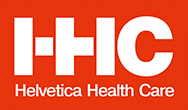Nucleic Acid-Based Therapeutics: A Promising Frontier in Healthcare
The field of medicine is constantly evolving, and the emergence of nucleic acid-based therapeutics marks a significant leap forward. This innovative approach utilises molecules like DNA and RNA to treat various diseases, offering a unique and potentially transformative perspective on healthcare.
What are Nucleic Acids and Their Role in Healthcare?
Nucleic acids are the molecules that carry genetic information in living organisms. They come in two main forms: deoxyribonucleic acid (DNA), which stores genetic instructions, and ribonucleic acid (RNA), which plays a crucial role in protein synthesis.
In healthcare, nucleic acids serve as the blueprint for developing innovative therapies targeting genetic disorders, infectious diseases, and even cancer.
What is nucleic acid testing (NAT)?
Nucleic acid testing (NAT) is an extremely precise method of molecular diagnosis that detects pathogens by analysing their genetic material. NAT plays a vital role in diagnosing, treating, and managing infectious diseases. Helvetica Health Care (HHC) provides a variety of high-quality NATrol products for the detection of SARS-CoV-2, Influenza A/B, HIV-1/2, and many other infectious diseases.
To learn more about emerging nucleic acid testing technologies, please read our previous article.
What are nucleic acid-based therapeutics?
Nucleic acid-based therapeutics refer to treatments that utilise nucleic acids, such as DNA or RNA, to modify or control gene expression within cells. These therapeutics can take various forms, including gene therapy, antisense oligonucleotides, RNA interference (RNAi), and messenger RNA (mRNA) vaccines.
How do nucleic acid therapeutics work?
There are several approaches used in nucleic acid therapeutics. Antisense oligonucleotides can bind to specific RNA sequences, blocking protein production. Small interfering RNAs (siRNAs) can degrade target mRNAs by RNA interference to achieve gene silencing.
MicroRNA modulators can inhibit or enhance microRNA activity to regulate gene expression. CRISPR gene editing introduces changes to the genome to correct disease-causing mutations. Viral vectors can deliver therapeutic genes to replace faulty genes or introduce new capabilities.
What are the Key Applications of Nucleic Acid Therapeutics?
- Genetic disorders: Targeting the root cause of inherited diseases like cystic fibrosis, muscular dystrophy, and sickle cell anaemia.
- Cancer: Precision targeting of oncogenes or tumour suppressor genes to inhibit tumour growth or enhance immune response against cancer cells.
- Infectious diseases: Developing RNA-based vaccines or antiviral therapies to combat viral infections such as COVID-19.
- Neurological disorders: Modulating gene expression to address conditions like Alzheimer’s disease, Parkinson’s disease, and spinal muscular atrophy.
What are the Advantages of Nucleic Acid-Based Therapeutics?
Nucleic acid-based therapeutics offer several advantages over traditional small molecule drugs, including:
- Precision Targeting: These therapeutics can be designed to target specific genes or gene products, offering a highly targeted approach with minimal off-target effects.
- Potential for Personalized Medicine: The ability to tailor treatments to an individual’s genetic profile holds promise for personalised medicine, where therapies can be optimised based on a patient’s unique genetic characteristics.
- Versatility: Nucleic acid-based therapeutics are versatile and can be adapted to target a wide range of diseases and genetic abnormalities.
- Lower Toxicity: Compared to traditional chemotherapy drugs, which often have significant side effects, nucleic acid-based therapeutics may offer a safer alternative with reduced toxicity.
What Is the Future Outlook for Nucleic Acid-Based Therapeutics?
The future of nucleic acid-based therapeutics appears bright, with ongoing research and technological advancements driving innovation in this field. With continued refinement of delivery systems, improved understanding of gene regulation, and expanded clinical applications, these therapies hold the potential to revolutionise healthcare by offering targeted, personalised, and potentially curative treatments for a wide range of diseases.
Conclusion:
Nucleic acid-based therapeutics represent a groundbreaking frontier in healthcare, offering targeted and personalised treatments with the potential to transform the management of genetic disorders, infectious diseases, cancer, and beyond.
As research progresses and technology evolves, the promise of these innovative therapies continues to grow, ushering in a new era of precision medicine and improved patient outcomes.
At Helvetica Health Care, we lead the charge in this technological revolution, continually developing advanced testing products to address present demands and pave the way for future applications. Our comprehensive line-up of NATrol products ensures high precision in detecting various conditions, including SARS-CoV-2, Influenza A/B, HIV-1/2, and mutations associated with cancer.
To make NAT workflows more efficient, we provide the Flash Dx1000-e, a fully automated system for detecting nucleic acids quickly and accurately.
With high throughput and compatibility with various assays, it eliminates manual steps, ensuring accuracy and saving time. Our portfolio includes external run controls, panels, and instruments for precise diagnostics and research. Invest in quality solutions from HHC to advance infectious disease or genetic testing.
Visit the Helvetica Health Care to know more about what we do.
